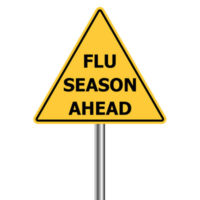CDC Recommendations for 2019-2020 Flu Season
September 27, 2019 It’s time to talk about the upcoming 2019-2020 flu season, which is rapidly approaching. To keep our clients and readers in the loop and covered against the pesky (though sometimes serious or even deadly) influenza virus, we have compiled the Center for Disease Control and Prevention’s (CDC) official immunization recommendations below.
It’s time to talk about the upcoming 2019-2020 flu season, which is rapidly approaching. To keep our clients and readers in the loop and covered against the pesky (though sometimes serious or even deadly) influenza virus, we have compiled the Center for Disease Control and Prevention’s (CDC) official immunization recommendations below.
The flu is a viral infection that attacks a person’s respiratory system, causing a variety of health complications. Every year, certain strains of the flu virus are more common, so the CDC makes sure to update its guidelines – and this year is no exception.
Symptoms, Complications, and Treatment
People who develop the flu can experience many different symptoms. Some of the most common ones to look out for are:
- Feeling feverish (e.g. having the chills) or having a fever;
- Muscle or body aches;
- Sore throat;
- Runny nose;
- Cough;
- Fatigue and tiredness, and:
- Vomiting and diarrhea (more common in children than adults)
Some people face higher risks for contracting the flu virus or experiencing serious, deadly complications than others. Pregnant women, individuals who are 65 years and older, people with chronic health conditions (like heart disease, diabetes, or asthma), and children 5-years-old or younger are all considered to be high risk.
Complications from the flu range from mild to deadly. Minor complications include an ear or sinus infection, while pneumonia is a serious and fatal one. Sepsis (a condition resulting from the body’s extreme response to infection, which can lead to organ failure) is yet another deadly complication linked to the virus. Because the complications can be so severe, getting diagnosed and treated – particularly for high- risk cases – is critical. If you are experiencing flu-related symptoms, make an appointment with a medical professional. If the symptoms are severe, seek medical help immediately.
The CDC’s Official Recommendations
The best way to guard against the flu virus is to get immunized. The CDC recommends that everyone 6-months-old and older get vaccinated each flu season – especially people who are at high-risk for contracting the virus. Vaccination recommendations depend on a person’s age, so it is advisable to discuss options with a doctor.
There are shots and nasal sprays, and although the CDC does not promote one vaccine over another, it does stress the importance of getting vaccinated annually. There are some people who should not get the flu vaccine, like children under 6-months-old and people with life-threatening allergies to the flu vaccine or its ingredients (e.g. egg).
Flu shots are easy to access – they are given at doctor’s office, pharmacies, and even in some workplaces. You can learn more about the 2019-2020 flu season or where to get your flu shot.
Reading Personal Injury Lawyers at Galfand Berger, LLP Representing Injured Individuals Since 1947
If you have questions about an injury, please contact the Reading personal injury attorneys at Galfand Berger. With offices located in Philadelphia, Bethlehem, Lancaster, and Reading, we serve clients throughout Pennsylvania and New Jersey. To schedule a consultation, call us at 800-222-8792 or complete our online contact form.
 Google Screened
Google Screened
